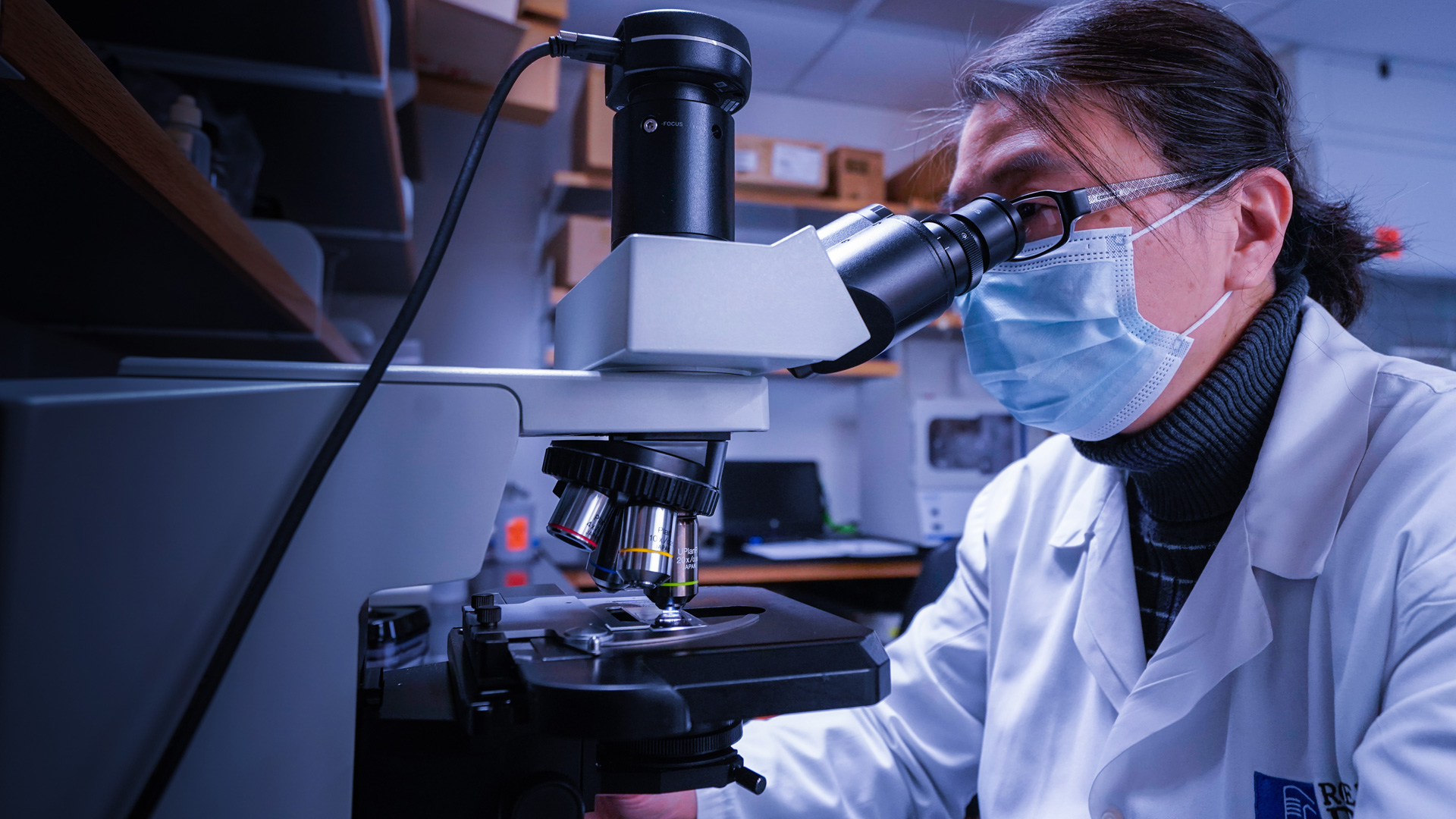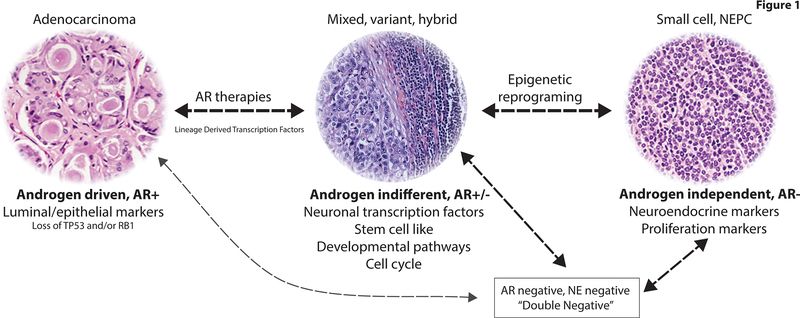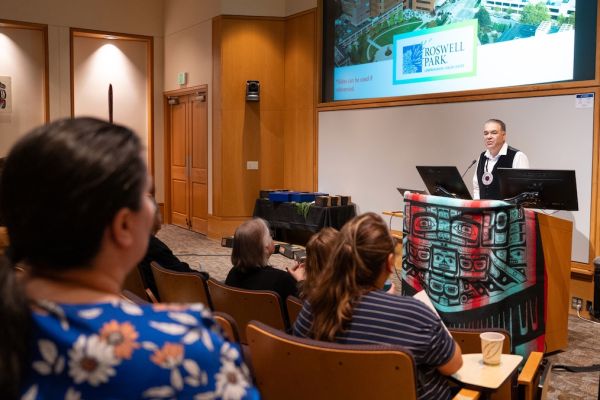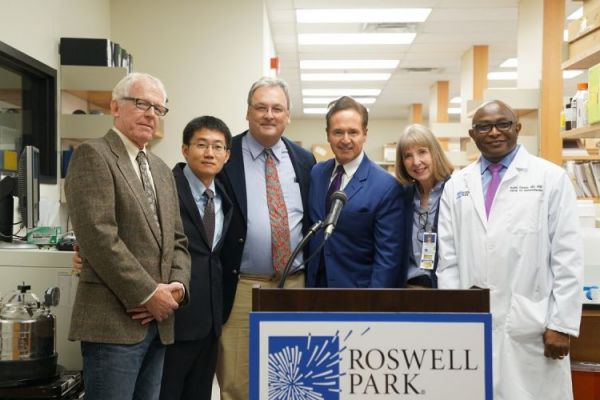Understanding tumor suppressor gene function
The long-term goal of the Goodrich lab is understanding how alterations in tumor suppressor genes like RB1, TP53, and Pten influence cancer progression and therapeutic resistance.
These tumor suppressors are some of the most frequently altered genes in human cancer, particularly in metastatic and therapeutically resistant cancer – understanding how they function at the molecular level will both refine our fundamental understanding of cancer and suggest novel therapeutic approaches to treat it.
Research focus
The Goodrich Lab investigates how mutations in tumor suppressor genes drive cancer progression and therapeutic resistance.
Join our team!
The Goodrich lab at Roswell Park Comprehensive Cancer Center is looking for a highly motivated postdoctoral fellow to study prostate cancer lineage plasticity.
The postdoc will work with a dynamic team of clinicians and scientists to perform both pre-clinical experiments and clinical trial correlative studies aimed at both understanding mechanisms underlying prostate cancer lineage plasticity and targeting them for therapeutic benefit.
In the news
Cancer is a moving target, making it very difficult to cure. We’re working to understand how cancers change in response to therapy, so we can make the target easier to hit.
Contact the Goodrich Lab
Email: David.Goodrich@RoswellPark.org
Phone: 716-845-4506
Department of Pharmacology and Therapeutics
Roswell Park Comprehensive Cancer Center
Elm and Carlton Streets
Buffalo, NY 14263





